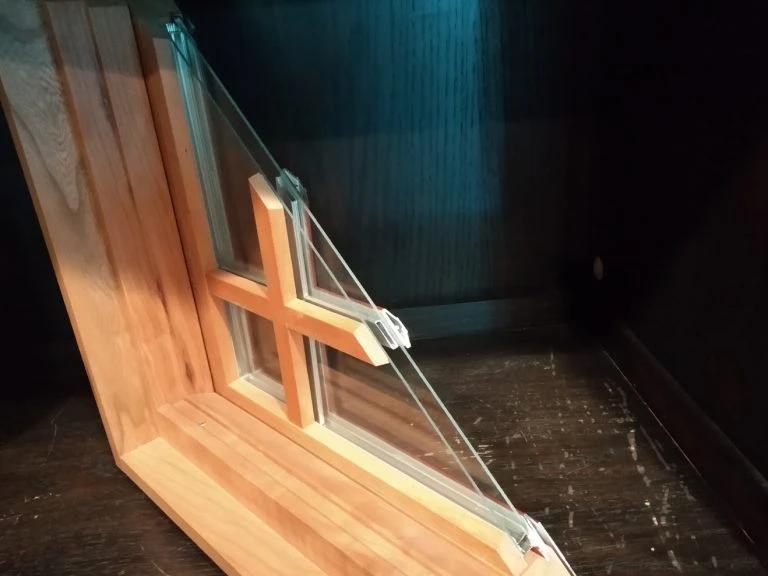
A single pane window is just that. A single pane of glass glazed into a frame. There is no additional insulation between the outside temperature and the interior. Some older homes still have the original single pane windows. Instead of replacing the windows, homeowners have added window film or PVC roll sheeting to the glass to make their homes more comfortable.. In talking with these homeowners they tell me that they choose to keep the drapes closed inside as well. So basically, they don’t have the use of the windows at all. These methods don’t allow air flow or light into their homes. If you still have single pane windows, put this newsletter down and call us ASAP.
Double pane windows began their evolution in 1913 when Andersen Lumber company began making wood frame windows. In 1952 they introduced a welded glass window. Today it is known as an IGU: insulated glass unit. Two panes of glass separated by spacer material and then sealed to form a unit of glass. Gas has always been the filler between the two panes of glass. The original gas used was the air. In the 70’s, some window manufacturers started using Freon or carbon dioxide. Argon was later recognized as a good balance between thermal performance and value.
If the seal fails, the gas escapes. But it doesn’t leave a vacuum. Air will fill the space. It’s not a bad thing but it doesn’t provide the same thermal conductivity as another gas. Unfotunately, gas can’t be added after market. The IGU must be replaced if the frame is in good shape
Triple pane glass is comprised with 3 panes of glass, separated by 2 spacer bars and each void is filled with gas. As you can imagine, the extra material increases the weight of the unit and the frame requirements are greater.
When choosing your new windows, take a look at the following factors before you choose either double or triple pane:
Energy efficiency: A double pane IGU with argon gas will reflect 90% of the energy and allow only 10% to transfer. Either keeping heat outside or keeping heat inside. Triple pane glass will reflect 97% of the energy and allow only 3% transfer.
Light: If you like natural light, you’ll want to consider that a third pane of glass will include extra coatings for the sun to pass through. It will be subtle but needs to be considered if you like natural light.
Sound: That extra glass and gas is also one more buffer against sound. Triple pane windows reduce noise.
Price:Triple pane glass windows will cost 1/3 more. For some, that’s a value. For most of us, double pan is the value choice.